Baby’s First Bald Spot
“WANNA CAUSE SOME trouble?” the deputy executive director of Human Rights Watch asked when we got on the phone in 2010. I was in New Orleans, on a months-long assignment covering the BP oil spill; she proposed that when I was done, I go to the Democratic Republic of Congo to chase around an alleged mass-murdering and child-soldier-conscripting general who’d been indicted by the International Criminal Court but who was, instead of being arrested, having fancy brunches in Goma.
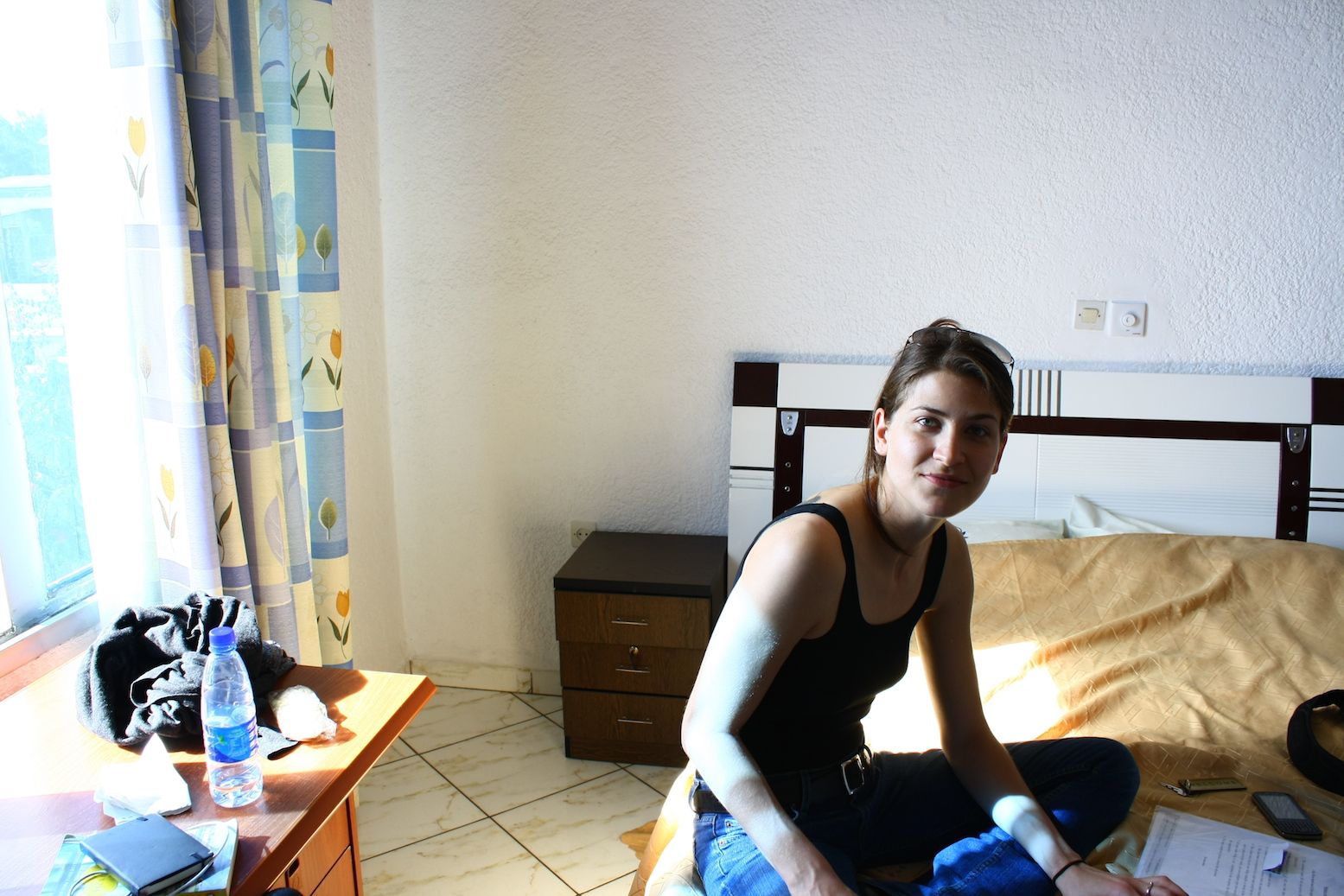
And so I did.
Though it doesn’t feel to me like the most harrowing story I ever reported, it may have been the most objectively dangerous, though even as I say that, I think about the bodyguard the New York Times Magazine sent with me to the Turkish border, pointing at a guy leaning against a building on the Syrian side 40 yards away and saying he was scouting me so that if I crossed, he could have a car of kidnappers there in seconds. Logistically, reporting in the Congo was the most complicated to orchestrate for sure. I remember I landed in the country with something like $10,000 in cash in an envelope in my underwear. I wrote a blog post about it at the time, but I can’t use it to fact-check the exact amount of money because I had the editors back in San Francisco delete it when my Congolese fixer told me publishing while I was still in-country could get us both killed.
I was thinking about this one day recently because that day, as a couple of days a week, I went to a grocery store and picked up a few things, and walking toward the checkout with my little cart I thought, as I almost always think to myself when I complete a small life task: Yes! I did it.
The next day, I did something in my bathroom so small I can’t even remember what it was—trimmed errant beard hair, or swept the tiny floor—but as I finished, I thought: I CAN do things.

“Can you go to Kurdistan?” an editor at the Atlantic asked me a decade ago. She wanted me to follow some guys who were extremely rich and powerful and protected, maybe including by the U.S. government?, but maybe trafficking guns, or girls, or both?—I don’t recall the precise details. “Yeah, I can,” I responded, and asked if the magazine was planning to send me with security. She said she’d call me back, and when she did, she told me she’d priced a protection detail at $8,000, so if I really needed one, they’d ask someone else.
I declined the assignment. Not because I felt like I “needed” security—Turkey was the single time an employer had sent any before—but because I was getting tired, and I also couldn’t imagine working for people who thought it was okay to tell me my life wasn’t worth eight grand.
THIS SPRING, I got a haircut, after a couple months of either letting it go or cutting it myself. At the end, the guy—who was, it turned out, a weirdly young and avid Civil War reenactor—did the thing where they turn you around and hand you a mirror to show you the back and there, to my shock, was a totally unfamiliar head.
It’d only been eight or ten weeks since the last time I’d had a professional haircut and seen it. But it had changed.
“Is that a bald spot?” I asked, putting my hand to my chest. I’d always had what several barbers and stylists called a strong whorl, but it looked…bigger.
“Yeah, you’re thinning a bit back here,” he said, tenting his fingers on top of my skull.
I didn’t know how to feel. I told him I didn’t know how to feel. I couldn’t feel whatever I was feeling while he was talking lengthily about educating the old-timers in the other fake regiments that the Civil War was about slavery, actually, and to stop using slurs against Blacks and queers.
Here’s a totally unsubstantiated statistic, which I just made up: Four percent of all transmasculine conversation happening at any given time is about balding. That’s my estimate. It is weird, to grow up and perhaps even reach adulthood and maybe even senior citizenship without spending one second thinking about testosterone-related hair loss, and then to medically transition and know that no one has ever heard of someone who’s done so without balding, or taking medicine to stop it. I don’t know how many hours of relentless Hair Club for Men commercials I consumed as a child, but back then I thought it was a curious thing to care about; when I started being on the receiving end of other transmascs’ bald panic, I could intellectually understand why they were upset, but unlike the time someone told me his ovaries withered and fused to his abdominal wall after decades of taking testosterone, I personally couldn’t get worked up about it.
Just days before I got my hair cut, I’d been sitting on a cold, sunny beach with a friend. There was a convocation of eagles flying around, back and forth between some tall Douglas firs and a deer carcass they’d picked nearly clean on the sand. (Having never seen so many eagles in such proximity before, I’d never realized, I told my friend, how dainty their call was.) Maybe subconsciously I was reminded by their name—they were bald eagles—or maybe I was just fulfilling my quota of transmasculine balding talk, but either way, I told my friend that my hairline had swiftly shifted backwards at the top corners, like a Talented Mr. Ripley-era Jude Law’s. It had happened, it seemed, overnight. I’d known this day would come when I started taking testosterone, but, I told him, I thought I’d have more time. My choice now was to take finasteride to fight it or to let it ride. “Even as I say that out loud,” I said, “the answer feels obvious.”
At the exact same time, we said opposite things. “Take it,” he said, while I said, “Not take it.”
But a little masculinizing forehead shift is different than a balding spot. I’d always had great hair—that fact is totally substantiated. Sitting in the barber’s chair, I tried to sort through what was happening in my body in the aftermath of seeing it. “I look like somebody’s dad,” I told him.
I didn’t feel like anybody’s dad. I often felt, it would seem by my disbelief that I could perform basic life functions, like a baby. Trauma freezes lots of people in their development, but many hyperdevelop instead, or, paradoxically, at the same time. Early on, I stuffed away all of my child parts and took on impossible levels of adult responsibility and dangers, so there was no question by the age of 30 that I could, between writing the Congo and Syria stories, marry and orchestrate the immigration of a whole Frenchman, and take care of him like a fifties housewife while also earning our money by finishing seven other features across multiple countries and teaching him English, a language he did not speak, at all, when we met.
Back then, obviously I could. I could be his mom, and his dad and his personal assistant and his wife and the husband. Then I started remembering, and still organized some complicated assignments and a divorce, and then I started transitioning, and still worked a bit and managed an interstate move and a relationship and jumped through Olympics-level mental health and health care hoops, until one day two and a half years ago I finally woke up in a hospital with a penis and liberated so many young parts of myself previously locked in dysphoric amber that since then, I feel like I deserve a parade every time I manage to make a fucking salad.

“REPARENTING,” THE FOUNDATION for Post-Traumatic Healing and Complex Trauma Research explains in this definition I just handily pulled off the internet, “involves learning to give your wounded inner child all the love, respect, and dignity they deserved when you were young.”
For a very long time, my specialty was devoting just this kind of care to other adults. As a kid, I kid-gloved my terrible, terrible, horrifying excuse for a father no matter what crimes against humanity he perpetrated upon me; as an adult, I took on several adult partners who were perfectly abled but demanded essentially childcare. One who thought it was fair that I handled both the finances and housework while also teaching him to speak English is almost too on the nose. Another, my most recent ex, was indeed younger than me—though not an actual minor—but after we’d been in a romantic cohabitating relationship for more than a year started protesting, when I asked him to follow through on some chore or commitment, “I’m just a kid.”
The first time he said this, my eyes turned into saucers. “We should absolutely not be having sex or dating if that’s true for you,” I responded, alarmed. The second or third time he said it, I shook my head with frustration and said, “You went to Stanford.”
“It’s incredibly dissatisfying to raise adult men who think they’re babies,” I told someone over tea earlier this year. He nodded, smiling good-naturedly at my struggle, and said: “And it doesn’t work.”
It’s with some embarrassment that I admit that up until the moment this sentence came out of his mouth, I hadn’t realized that. Like, I knew that it hadn’t worked when I’d tried it, but not that it didn’t work in general.
“You’re right,” I said, my eyes wide, with disbelief now, with epiphany, with the parting of skies that had cleared to reveal the sun had been up there all along, without my holding it, without my forcing it. Easefully shining.

I was forty-one when I started reparenting myself. It is not a coincidence that I had recently finished the surgeries I needed to transition. That Christmas, while many idiots freaked out about my body, I separated from my boyfriend and, instead of cursing the cacophony of cries that had started clamoring for attention inside my head like I usually did, I started listening to them. Recently, they’d been making me feel like I was insane. Everything I did, or started to do, elicited as many objections as a whole house full of contentious siblings, long-ignored parts of me panicking about how to try to not get hurt but often just wanting to do one thing: nothing. Just wanting to rest. Just wanting to lie down for days at a time drinking tea and juice and watching movies. I started a conversation, then, in which I asked them what they needed and wanted, much like the parts work therapies like IFS use, but all day, every day.
If I had been doing that my whole life, I wouldn’t have done most of what I did in my life. Almost every single day that I woke up on assignment, at least some part of me did not want to go outside. But I also had to do the things I did in my life to get to the point where I was ready to start listening. It is weird to be forty-two and two at the same time, and nailing adulthood simultaneously with self-reparenting is time- and energy-consuming. It required a lot of solitude, which sometimes I took and sometimes I didn’t, and when I didn’t, I got back into doing things that weren’t fully aligned: gritting my teeth through overwork, maintaining a toxic friendship. Lately, I’ve managed to integrate more non-solitude into the amount of alone time I need to both hear and heed those parts (though I still often require large amounts of rest), and altogether I’d been reparenting myself very actively for more than two years, and transitioning for more than five, when I went to a barber and learned that all of a sudden, my body had grown up.

IN THE TWO months prior to my hair appointment, I’d gained at least ten pounds. In the next two, I gained at least that over again. I was eating exactly whatever I’d always been. I had moments of concern about it, because I’ve been consuming the same poisonous brainwashing about bodyweight as the rest of the country since birth, but as my waist and arms thickened in a middle-aged way, I felt sturdier, and more whole, and overall the same way I’d felt leaving the barber’s when I finally walked out the door.
I was relieved.
I took big, gulping breaths of thank god, walking to my bike with my neck trimmed clean, my bald spot crisp and open to the chilled heavens. I felt like I had made it. I had reached some point or place I’d had no idea I’d been striving for—waiting for—and suddenly without trying, but in the culmination of so much trying, I was there. I kept retrieving the image the barber had shown me in the mirror, looking at it again and again in my head: full shoulders and upper arms, thinning cowlick. I looked like somebody’s dad. I was absolutely somebody’s dad. It wasn’t the kind of dad I’d thought I’d be—I thought, like most people, that I’d become a dad without ever having parented my own self. It was harder than anything I’d ever done, though I’ve been doing nothing but hard things for as long as I can remember.
Today, I did a lot. I woke up and biked to an old-growth redwood forest and let it hold me; I wrote a letter, and made a soup, and napped, and cried, and did laundry, and self-massaged the scars on my right leg and hip, and processed a flashback, and talked to my ex-husband to ask him for help with something, and cleaned my house, and fed myself, and by the way I also have covid (though I took a full course of Paxlovid, and am officially a fan). At many points, I paused—it’s more of a reflex now, built right into my existence—to ask for feedback or consensus or compromise from all my parts, especially those young and scared and long-ignored ones. When I was doing the dishes before bed, which I was surprised to have the energy to do, I felt full and calm and noticed how the language had evolved a bit when, unbidden, it popped into my head, sounding prouder now.
I’m doing it.


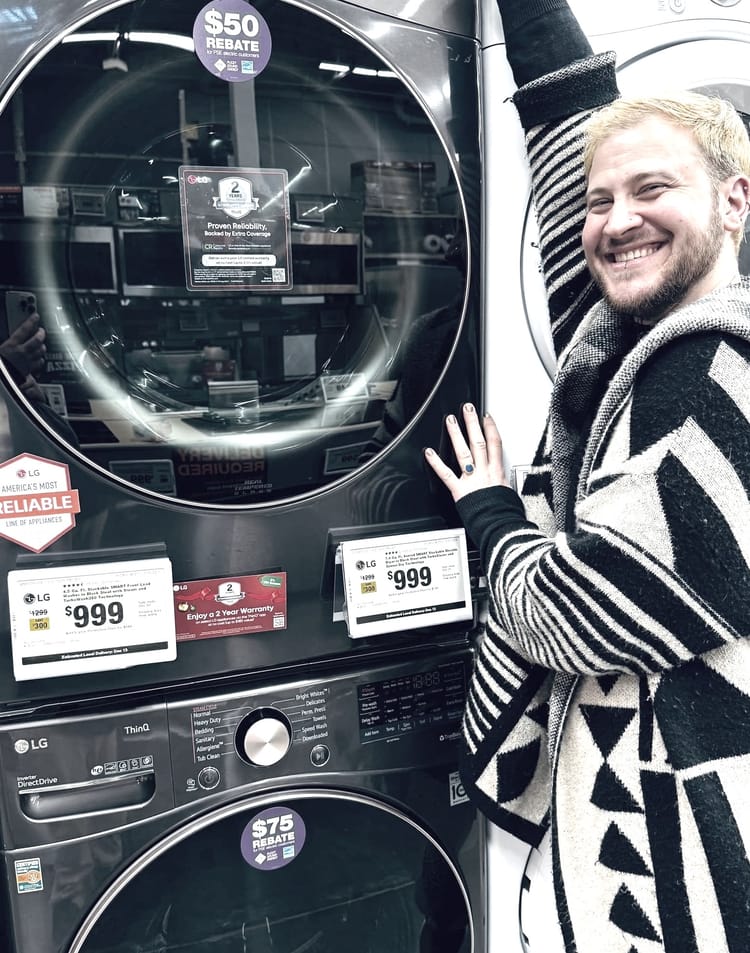
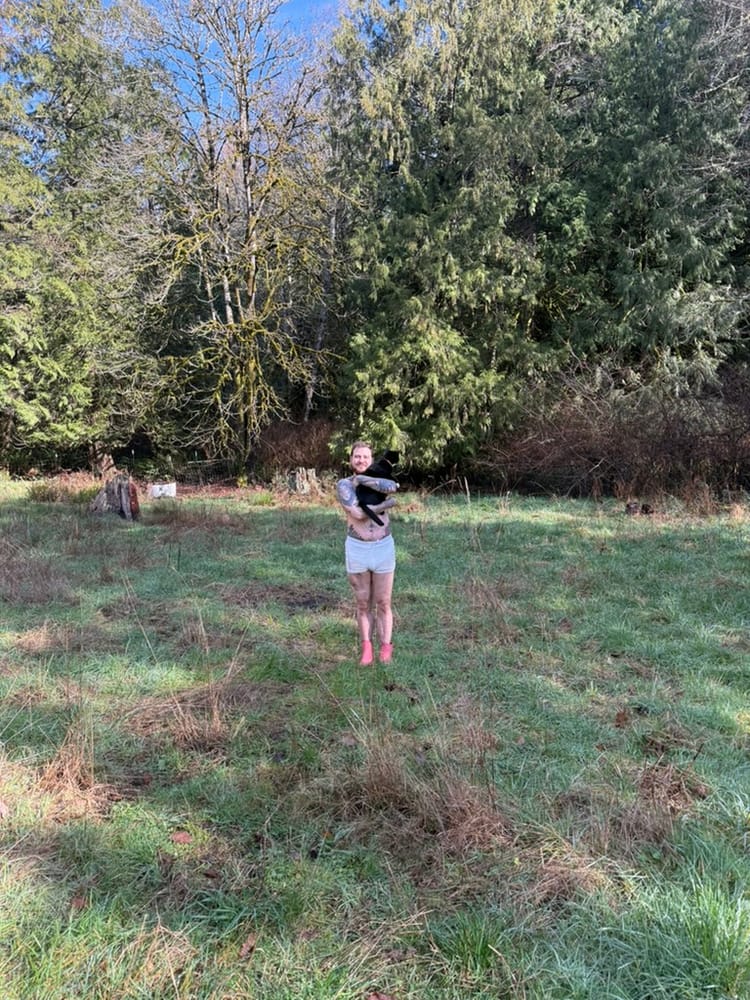
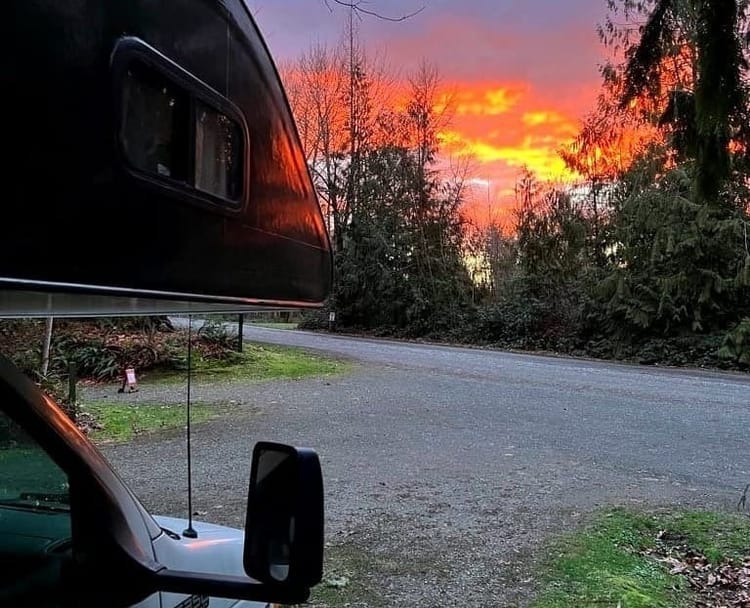
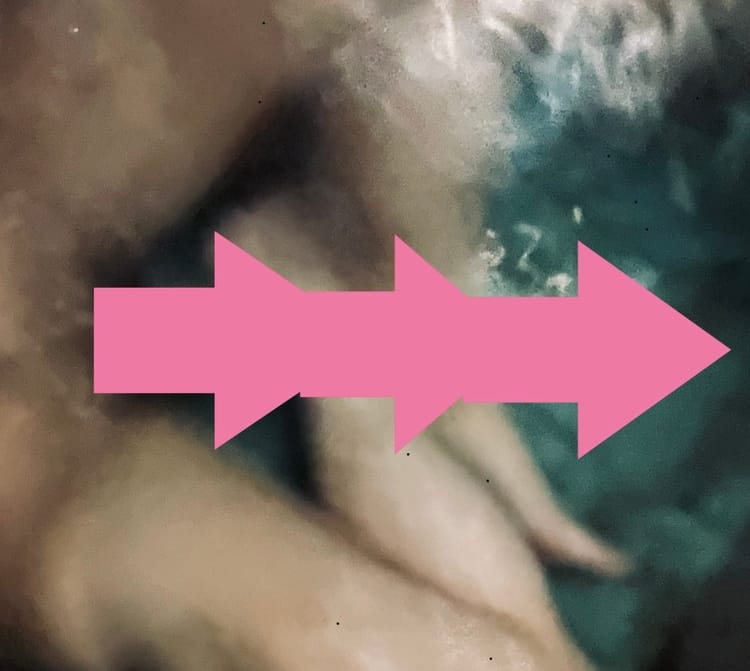
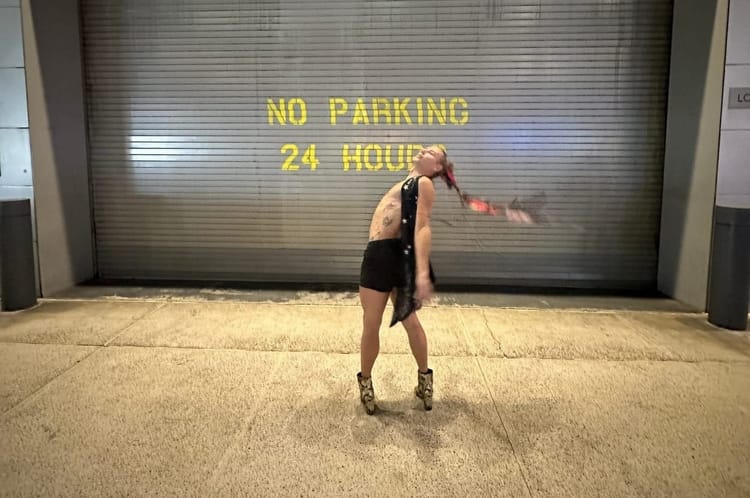
Member discussion